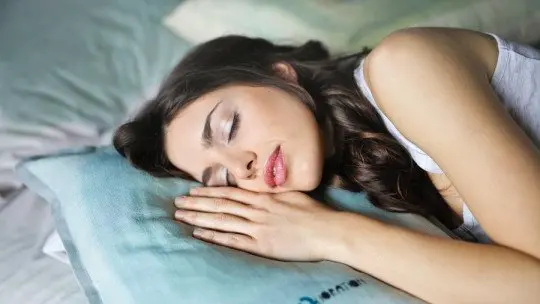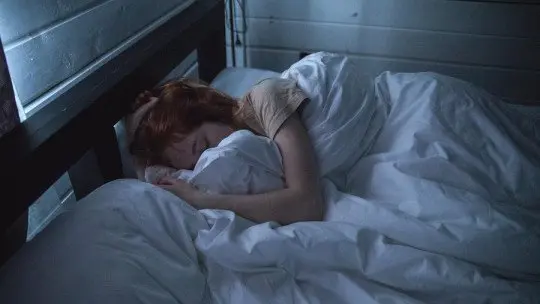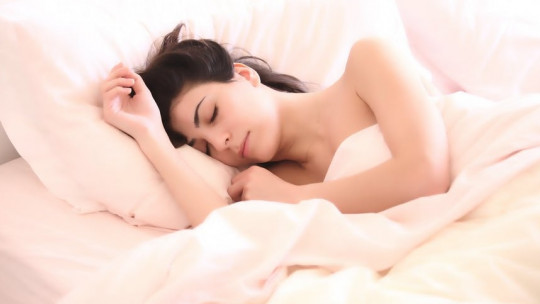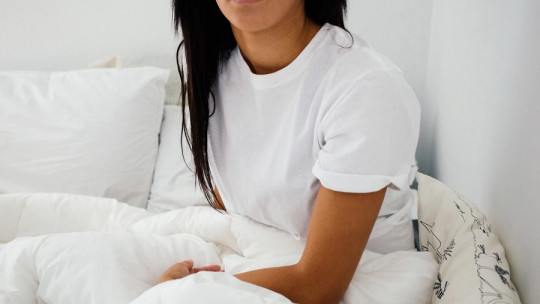
Sleeping is considered by many people to be one of the greatest pleasures of life on Earth. Sleep is a key indicator of people’s health and well-being. Getting enough sleep allows our body to complete its psychobiological functions in the most efficient way possible. And the body functions under biological rhythms that seek balance for greater health and general well-being.
Therefore, when we do not sleep enough, different problems can knock on our door. Different studies show that lack of sleep is directly related to difficulties with concentration, fatigue and irritability, leading to a decrease in general performance and making more errors. In addition, lack of sleep has also been related to emotional problems, one of these being a greater predisposition to anxiety.
In this article we are going to talk about In what ways lack of sleep can generate anxiety and how this relationship can be explained. We will thus seek to shed light on a topic that is so complex for many people and propose some tips for establishing good and complete sleep routines.
The link between sleep and anxiety
Sleep, as you probably already know, is a fundamental part of our lives, a physiological function necessary to maintain our health and well-being. Although we often understand it as a period of passive rest, sleep is an active and complex process in which our body functions carrying out different vital tasks. While we sleep, our brain processes information, consolidates memory, and repairs and regenerates tissues.
Anxiety, on the other hand, is a sometimes natural and adaptive response to stressful situations. However, sometimes it can become chronic and associate its response to a whole network of stimuli, having a very negative impact on our mental health and quality of daily life. The most common symptoms of anxiety include excessive worry, muscle tension, insomnia, and difficulty concentrating.
Sleep plays a vital role in regulating emotions and proper brain function. When we don’t get enough sleep, cognitive and emotional functions can be altered. Lack of sleep negatively affects the amygdala, a brain region involved in the fear and stress response. This can increase emotional reactivity and cause situations that would not normally cause anxiety to be perceived as threatening.
The relationship between anxiety and sleep is bidirectional. Those who experience anxiety may have difficulty falling asleep or staying asleep at night due to intrusive thoughts or constant worries. This can lead to a cycle where anxiety causes lack of sleep, and lack of sleep in turn makes the anxiety worse. There are many scientific studies that focus on the bidirectional relationship between sleep disorders and anxiety disorders. On the one hand, it has been shown that The more anxiety a person feels, the more difficulty they experience in falling asleep. In turn, insomnia has been categorized as the most common sleep disorder among people who experience anxiety disorders.
Long term consequences
As we have already mentioned, yes, lack of sleep can be a risk factor for the development of anxiety disorders. People who struggle with sleep deprivation and anxiety often find that their personal relationships, work performance, and emotional well-being suffer. Chronic fatigue can make it difficult to enjoy daily activities and limit opportunities to participate in social events.
Lack of sleep has also been associated with an increased risk of physical health problems, such as cardiovascular disease, diabetes, and obesity. Chronic anxiety may contribute to these risks, as prolonged stress can have adverse effects on the cardiovascular system and metabolism.
It is important to highlight that The relationship between lack of sleep and anxiety often becomes a vicious cycle. Anxiety can make it difficult to sleep, and lack of sleep can aggravate anxiety, leading to a perpetual cycle that affects both mental and physical health.
Tips to improve your sleep quality
To finish this article, we are going to propose a series of tips to improve your quality of sleep and learn to manage anxiety in a healthier way. It is important to recognize that not all people benefit from the same remedies in the same way, so it is important that you listen to yourself and pay attention to your own needs.
1. Establish consistent sleep routines
Try to go to bed and wake up at the same time every day, even on weekends. This helps regulate your biological clock and improves the quality of your sleep.
2. Create an environment conducive to sleep
Make sure your bedroom is a comfortable and relaxing space. Control the temperature, keep the room dark and reduce noise to facilitate a restful night’s sleep.
3. Reduce exposure to screens
Avoid using electronic devices with bright screens at least an hour before bedtime, as blue light can interfere with the production of melatonin, a hormone essential for sleep.
4. Practice relaxation
Incorporate relaxation techniques, such as meditation, deep breathing or yoga in your daily routine to reduce stress and anxiety, which will facilitate the process of falling asleep.
5. Limit caffeine and alcohol consumption
Avoid caffeine and alcohol before bed, as they can disrupt your sleep cycle and increase anxiety.
6. Consider psychological therapy
If anxiety or sleep problems persist, don’t hesitate to seek help from a mental health professional. Cognitive behavioral therapy and other therapies can be highly effective in addressing these problems.








